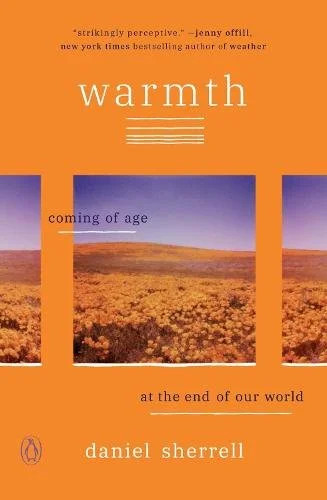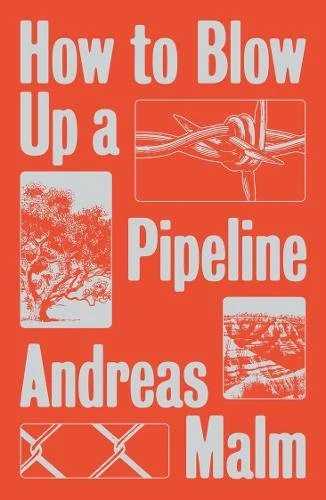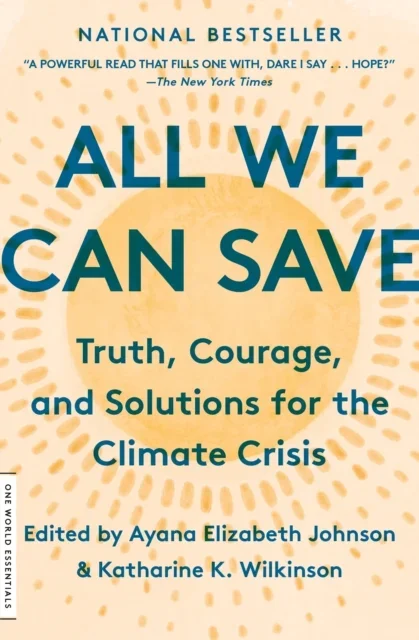BIOSPHERE Climate Reading List
The play BIOSPHERE explores what happens when a closed system fails. Outside the dome, it can be easy to feel separate from the global climate crisis—a disconnect often reflected in our relationship with the natural world. A recent study found that Britain is one of the least "nature connected" nations in the world.* Yet, our own environments, from London to Northampton to Glasgow, are already enduring change: hotter summers, extreme weather, and volatile seasons.
Watching BIOSPHERE, we hope, can be a space to connect. We invite you to look directly at the "elephant in the room," allowing space for whatever arises: fear, anger, sadness, and the uncertainty of change.
This reading list, compiled by Dr. Colleen Goja (BIOSPHERE’s Climate Science Consultant), provides resources to support that journey. It introduces concepts like environmental connectedness, climate grief, and the political power of acknowledged sadness. These small acts of engagement can lead to collective hope, and the power to shape the future we want.
*Source: ‘Britain one of least ‘nature-connected’ nations in world – with Nepal the most’ by Patrick Barkham, published in The Guardian on November 1, 2025
BEWILDERMENT by Richard Powers (Ficton)
THE SUNDAY TIMES BESTSELLER
SHORTLISTED FOR THE BOOKER PRIZE 2022
FROM THE PULITZER PRIZE-WINNING AUTHOR
‘Extraordinary’ New York Times
‘Remarkable’ Observer
‘Heartfelt’ Guardian
Theo Byrne is a promising young scientist who has found a way to search for life on other planets dozens of light years away. He is also the widowed father of a most unusual nine-year-old. His son Robin is funny, loving and filled with plans. He thinks and feels deeply, adores animals and can spend hours painting elaborate pictures. But after a violent outburst from Robin at school, the strength of their close bond will be tested to its limits...
What can a father do, when those around him refuse to understand his rare and troubled child? And how can he reveal to his boy the truth about our beautiful, bewildered world?
A CHILDREN’S BIBLE by Lydia Millet (Fiction)
Pulitzer Prize finalist Lydia Millet’s sublime new novel—her first since the National Book Award–longlisted Sweet Lamb of Heaven— follows a group of eerily mature children on a forced vacation with their parents at a lakeside mansion. Contemptuous of their elders, who pass their days in a hedonistic stupor, the children are driven out into a chaotic landscape after a great storm descends. The story’s narrator, Eve, devotes herself to the safety of her beloved little brother as events around them begin to mimic scenes from his cherished picture Bible.
Millet, praised as “unnervingly talented” (San Francisco Chronicle), has produced a heartbreaking story of the legacy of climate change denial. Her parable of the coming generational divide offers a lucid vision of what awaits us on the other side of Revelation.
WARMTH by Daniel Sherrell (Memoir)
Warmth is a new kind of book about climate change: not what it is or how we solve it, but how it feels to imagine a future - and a family - under its weight.
In a fiercely personal account written from inside the climate movement, Sherrell lays bare how the crisis is transforming our relationships to time, to hope, and to each other.
At once a memoir, a love letter, and an electric work of criticism, Warmth goes to the heart of the defining question of our time: how do we go on in a world that may not?
PRECARIOUS LIFE by Judith Butler (Essay)
Responding to the US’s perpetual war, Butler explores how mourning could inspire solidarity.
Precarious Life is an essay from this book.
In her most impassioned and personal book to date, Judith Butler responds in this profound appraisal of post-9/11 America to the current US policies to wage perpetual war, and calls for a deeper understanding of how mourning and violence might instead inspire solidarity and a quest for global justice.
HOW TO BLOW UP A PIPELINE by Andreas Malm
(Non-Fiction)
The science on climate change has been clear for a very long time now. Yet despite decades of appeals, mass street protests, petition campaigns, and peaceful demonstrations, we are still facing a booming fossil fuel industry, rising seas, rising emission levels, and a rising temperature. With the stakes so high, why haven't we moved beyond peaceful protest?
In this lyrical manifesto, noted climate scholar (and saboteur of SUV tires and coal mines) Andreas Malm makes an impassioned call for the climate movement to escalate its tactics in the face of ecological collapse. We need, he argues, to force fossil fuel extraction to stop--with our actions, with our bodies, and by defusing and destroying its tools. We need, in short, to start blowing up some oil pipelines.
ALL WE CAN SAVE by Ayana Elizabeth Johnson & Katharine K. Wilkinson (Non-Fiction)
NATIONAL BESTSELLER • Provocative and illuminating essays from women at the forefront of the climate movement who are harnessing truth, courage, and solutions to lead humanity forward.
“A powerful read that fills one with, dare I say . . . hope?”—The New York Times
NAMED ONE OF THE BEST BOOKS OF THE YEAR BY SMITHSONIAN MAGAZINE
All We Can Save illuminates the expertise and insights of dozens of diverse women leading on climate in the United States—scientists, journalists, farmers, lawyers, teachers, activists, innovators, wonks, and designers, across generations, geographies, and race—and aims to advance a more representative, nuanced, and solution-oriented public conversation on the climate crisis. These women offer a spectrum of ideas and insights for how we can rapidly, radically reshape society.







